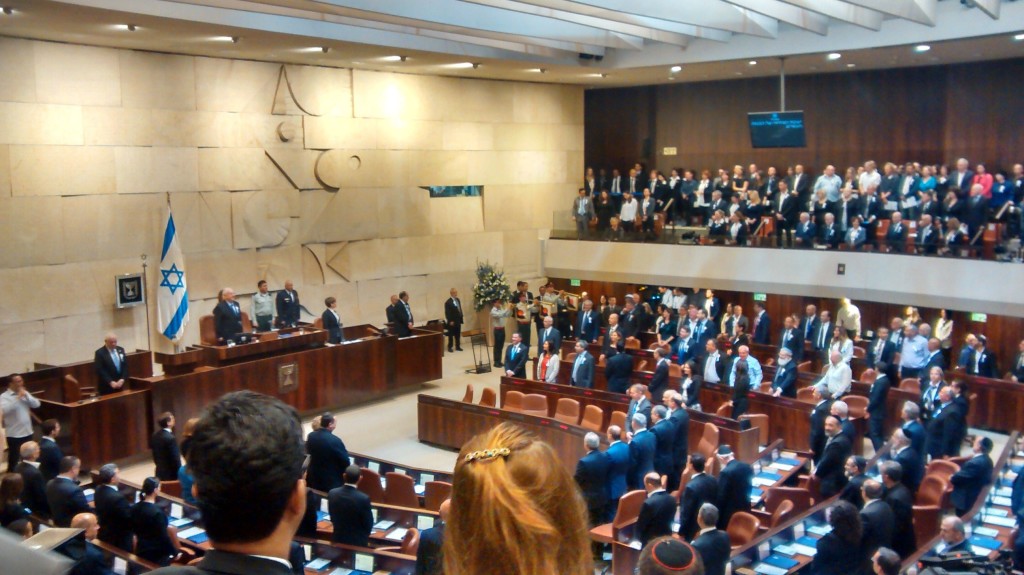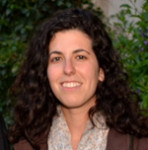
By Anav Silverman

JERUSALEM (Tazpit) — The Knesset opening session was buzzing with new faces, as 39 new Members of Knesset joined their veteran colleagues in the swearing in ceremony that took place in the Israeli parliament on Tuesday, March 31.
New Likud MK Dr. Avraham Negusie, the only Israeli of Ethiopian origin to be elected to the 20th Knesset, told Tazpit News Agency that he was very happy to be elected to the Israeli parliament. “I am not only representing my community but also all the new immigrants and Israeli society,” he told Tazpit. Negusie, who lives in Jerusalem with his family, made aliyah from Ethiopia in 1985 and is a social and political activist for Ethiopian aliyah and integration in Israel.
“I will be acting in the Knesset on social efforts and working to decrease the economic gaps in this country,” added Negusie, who has a PhD in philosophy of education from the University of Sussex in England.
Another new face to the Knesset is Moscow-born MK Ksenia Svetlova, of the Zionist Union party. An Israeli journalist on Arab affairs, who speaks Russian, Arabic, Hebrew and English, Svetlova told Tazpit that the first inaugural session of the Knesset was very important to her. “We take the oath of loyalty to Israel; it’s an oath that we swear to be loyal not only to our country but to the voters, to the people of Israel.”
Commenting on the record number of 28 women MKs in the Israeli parliament, Svetlova said that “it is a fantastic accomplishment but we are not there yet.” The new MK, who had to give up her Russian citizenship prior to being sworn in on Tuesday, hopes that in the future there will be an equal number of males and females in the Israeli parliament as well as in all government offices. “We are working towards this direction,” she said.
For veteran Knesset member, Energy and Water Minister Silvan Shalom of Likud, the day was just as historical and important as previous inaugurations. “It’s a very important day for Israeli democracy. This is not something that we should take for granted, especially while we are in the Middle East facing so many threats and security problems,” Shalom told Tazpit.
“We are the only democratic country in the region and we need to do everything we can to keep and strengthen our democracy here in Israel,” said Shalom who made aliyah to Israel from Tunisia when he was a one-year-old.
The swearing in of the new Knesset took place in the presence of Israeli President Reuven Rivlin, Prime Minister Benjamin Netanyahu and Supreme Court President Miriam Naor.
President Rivlin gave a special address during the opening of the Knesset and told the MKs that “the walls of these halls are transparent not only because the people are examining your work, but also so that you will look outward towards them…Do not forget for even a second who sent you here; the public’s trust should always be your paramount concern.”
“The decisions you make here, are the realization of our liberty as a people in the State of Israel, the Jewish democratic state.”
Veteran MK Amir Peretz led the Knesset opening session during his very brief stint as speaker, citing the significance of unity and brotherly love as important foundations in Judaism, Islam and Christianity.
Indeed, the Israeli president also likened Israeli society to a family at the Passover seder. “There are four sons: secular, religious, ultra-Orthodox and Arab. They are all smart and they all know to ask questions,” he said.
*
Silverman is a staff writer for the Tazpit News Agency in Israel
__________________________________________________________________
Care to comment? San Diego Jewish World is intended as a forum for the entire Jewish community, whatever your political leanings. Letters may be posted below provided they are responsive to the article that prompted them, and civil in their tone. Ad hominem attacks against any religion, country, gender, race, sexual orientation, or physical disability will not be considered for publication. Letters must be signed with your first and last name, and you must state your city and state of residence. There is a limit of one letter per writer on any given day.
__________________________________________________________________